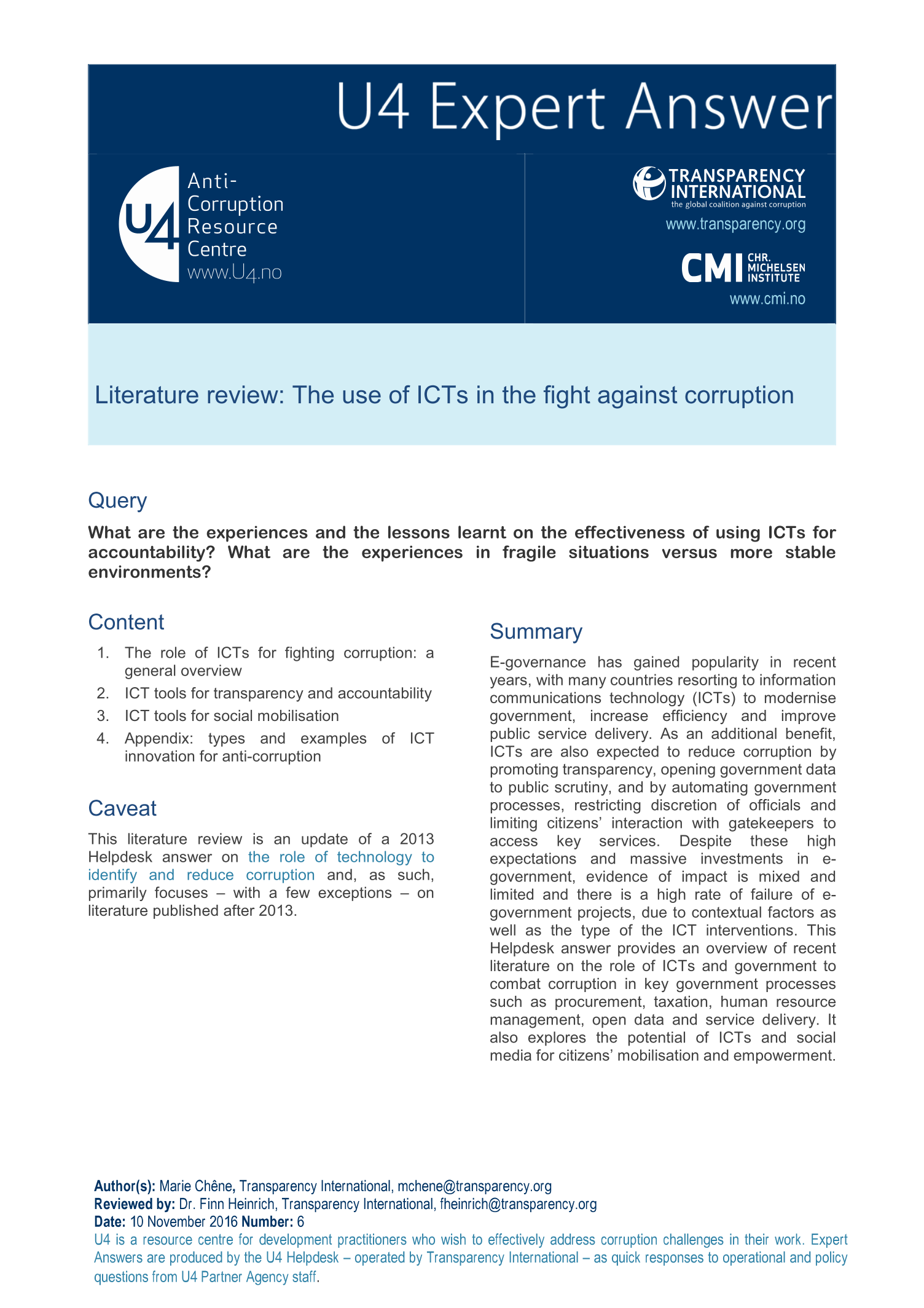U4 Helpdesk Answer
Literature review: The use of ICTs in the fight against corruption
E-governance has gained popularity in recent years, with many countries resorting to information communications technology (ICTs) to modernise government, increase efficiency and improve public service delivery. As an additional benefit, ICTs are also expected to reduce corruption by promoting transparency, opening government data to public scrutiny, and by automating government processes, restricting discretion of officials and limiting citizens’ interaction with gatekeepers to access key services. Despite these high expectations and massive investments in e-government, evidence of impact is mixed and limited and there is a high rate of failure of e-government projects, due to contextual factors as well as the type of the ICT interventions. This Helpdesk answer provides an overview of recent literature on the role of ICTs and government to combat corruption in key government processes such as procurement, taxation, human resource management, open data and service delivery. It also explores the potential of ICTs and social media for citizens’ mobilisation and empowerment.

Cite this publication
Chêne, M. 2016. Literature review: The use of ICTs in the fight against corruption. U4 Expert Answer 2016:6
Disclaimer
All views in this text are the author(s)’, and may differ from the U4 partner agencies’ policies.
This work is licenced under a Creative Commons Attribution-NonCommercial-NoDerivatives 4.0 International licence (CC BY-NC-ND 4.0)

